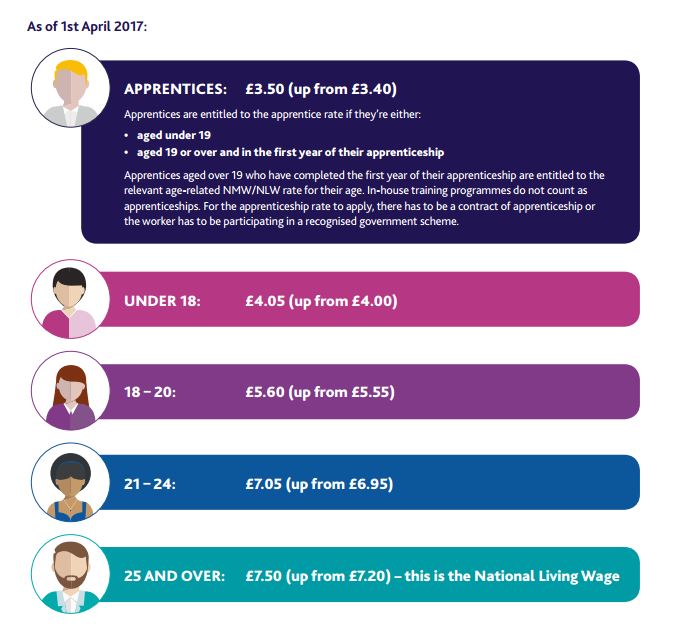Changes to the National Minimum and Living Wages
Your recruitment career
On the 1st April 2017 the National Minimum Wage and National Living Wage increased.
This change is important not only for you to be aware of, but for your clients and candidates too. Failing to pay the new rates incurs a 200% penalty of the underpayment, which means employers risk fines of up to £20,000 per underpaid worker. This blog gives an overview of the changes and answers the most common questions you're likely to be asked.
We've created a simple infographic to help explain who should be receiving the National Minimum and National Living Wage, make sure you're familiar with the rates and action any changes that need to happen as soon as possible.

Your questions answered! We know you'll be receiving questions from both clients and candidates about the changes, so we've pulled together the most common here.
I supply workers to a third party. Who is responsible for paying them the National Minimum Wage? While the third party (client) may set the worker's hours and conditions, the agency supplying them is responsible for ensuring the worker receives the National Minimum Wage.
Are there any offsets against pay? Yes, but only living accommodation provided by an employer can be taken into account when calculating the National Minimum and Living Wage. The accommodation offset rate for April 2017 is £6.40 - this will change in 2018. Other benefits such as uniform provision, food, transport, childcare vouchers do not count.
Is a worker entitled to National Minimum Wage when on-call? Not ordinarily. However if a worker is required to remain at or near their workplace and be available to work, this is classed as working time and they should be paid as a result.
Is a worker entitled to National Minimum Wage for travel time during work hours? Yes, employers have to pay workers for time spent travelling in connection to their job, so travel in working hours should be paid in full. What isn't included is travel between home and the place of work.
Do I need to pay an employee for the time they spend training? Yes, all time employees spend in training must be paid in full as this is work undertaken as part of employment.
Is a worker working when they are asleep? This is a tricky one as it depends on what the worker is actually doing in regards to contractual arrangements. For example, health and social care employees may be required to remain on premises overnight to satisfy health and safety requirements. This should be considered as work and they should therefore be paid for this time.
Need more information? The best place to go for additional advice is the government website. You'll find everything about the National Minimum Wage increase, how to check you're paying enough and what to do if you're not.
The Advisory, Conciliation and Arbitration Service (ACAS) provide a free helpline for National Minimum Wage questions. Simply call 0300 123 1100 for advice or visit their website.
Share this article

